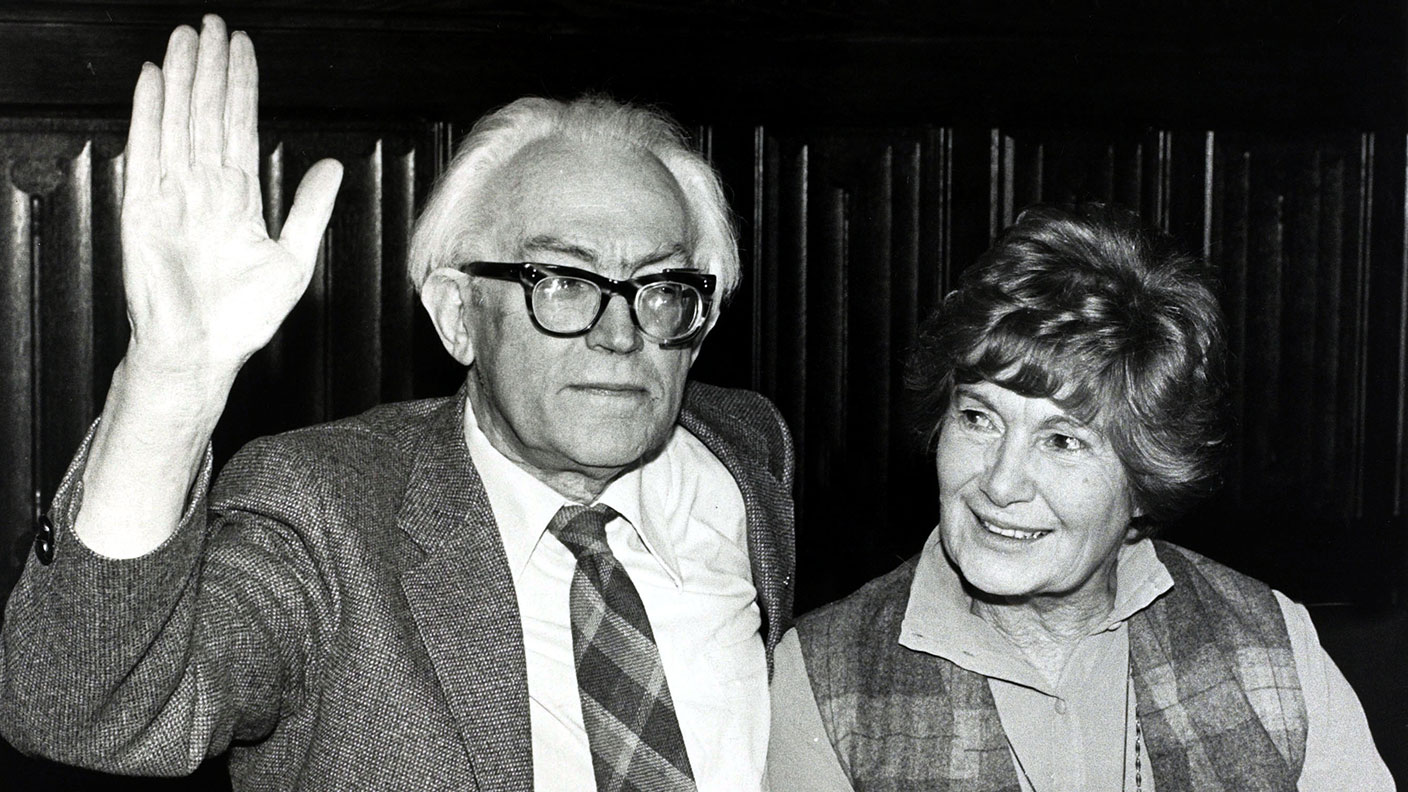10 November 1980: Michael Foot elected Labour leader
On this day in 1980, Michael Foot won the Labour party leadership election, steering the party into its worst-ever general election defeat.


Get the latest financial news, insights and expert analysis from our award-winning MoneyWeek team, to help you understand what really matters when it comes to your finances.
You are now subscribed
Your newsletter sign-up was successful
Want to add more newsletters?

Twice daily
MoneyWeek
Get the latest financial news, insights and expert analysis from our award-winning MoneyWeek team, to help you understand what really matters when it comes to your finances.

Four times a week
Look After My Bills
Sign up to our free money-saving newsletter, filled with the latest news and expert advice to help you find the best tips and deals for managing your bills. Start saving today!
A disastrous general election defeat followed by a hard-left' politician being elected to lead the party, it's not hard to see why Jeremy Corbyn's Labour party of 2015 has been compared so often to Michael Foot's of 1980. Both have been charged with being too left-wing, and of making Labour unelectable. But is the comparison really fair?
On 10 November 1980, 35 years ago today, Michael Foot beat the favourite, Denis Healey, to take the reins of the Labour party. It had recently been dumped out of government by Margaret Thatcher's Tories, and now found itself in opposition. But it was worse than that. The party was tearing itself apart.
Tony Benn and his Bennites' were on the left of the party; on the right were the social democrats. Michael Foot was the compromise candidate at least in the context of the Labour party. "Foot's greatest success was ensuring there was a party to hand over to Kinnock after 1983. He was not elected to win power", writes Dr Andrew Crines for The Huffington Post blog. "He was elected leader to guide the party through a time of civil war".
MoneyWeek
Subscribe to MoneyWeek today and get your first six magazine issues absolutely FREE

Sign up to Money Morning
Don't miss the latest investment and personal finances news, market analysis, plus money-saving tips with our free twice-daily newsletter
Don't miss the latest investment and personal finances news, market analysis, plus money-saving tips with our free twice-daily newsletter
And he didn't have to wait long for his first big battle. In March 1981, the Gang of Four' Roy Jenkins, David Owen, Bill Rodgers and Shirley Williams broke away to form the Social Democratic Party. The Labour Party was plunged into crisis. It was fighting to stay alive, never mind win an election.
In the run-up to the 1983 general election, Labour published its manifesto a list of promises and aspirations that proved to be its undoing: massive state spending to the tune of £11bn, sweeping nationalisations, a state oil company, a national investment bank' to manage the wealth coming from North Sea oil, unilateral nuclear disarmament, and withdrawal from the European Economic Community (EEC). It was, as Labour politician Gerald Kaufman famously put it, "the longest suicide note in history". Labour has returned to a many of these policies under Corbyn.
It was the most catastrophic election for Labour since 1918, with Mrs Thatcher being returned to power. It was also, incidentally, the election that saw a young Jeremy Corbyn enter Parliament. Foot resigned the leadership a few months later.
Get the latest financial news, insights and expert analysis from our award-winning MoneyWeek team, to help you understand what really matters when it comes to your finances.

-
 Should you buy an active ETF?
Should you buy an active ETF?ETFs are often mischaracterised as passive products, but they can be a convenient way to add active management to your portfolio
-
 Power up your pension before 5 April – easy ways to save before the tax year end
Power up your pension before 5 April – easy ways to save before the tax year endWith the end of the tax year looming, pension savers currently have a window to review and maximise what’s going into their retirement funds – we look at how
-
 31 August 1957: the Federation of Malaya declares independence from the UK
31 August 1957: the Federation of Malaya declares independence from the UKFeatures On this day in 1957, after ten years of preparation, the Federation of Malaya became an independent nation.
-
 13 April 1960: the first satellite navigation system is launched
13 April 1960: the first satellite navigation system is launchedFeatures On this day in 1960, Nasa sent the Transit 1B satellite into orbit to provide positioning for the US Navy’s fleet of Polaris ballistic missile submarines.
-
 9 April 1838: National Gallery opens in Trafalgar Square
9 April 1838: National Gallery opens in Trafalgar SquareFeatures On this day in 1838, William Wilkins’ new National Gallery building in Trafalgar Square opened to the public.
-
3 March 1962: British Antarctic Territory is created
Features On this day in 1962, Britain formed the British Antarctic Territory administered from the Falkland Islands.
-
10 March 2000: the dotcom bubble peaks
Features Tech mania fanned by the dawning of the internet age inflated the dotcom bubble to maximum extent, on this day in 2000.
-
9 March 1776: Adam Smith publishes 'The Wealth of Nations'
Features On this day in 1776, Adam Smith, the “father of modern economics”, published his hugely influential book The Wealth of Nations.
-
 8 March 1817: the New York Stock Exchange is formed
8 March 1817: the New York Stock Exchange is formedFeatures On this day in 1817, a group of brokers moved out of a New York coffee house to form what would become the biggest stock exchange in the world.
-
7 March 1969: Queen Elizabeth II officially opens the Victoria Line
Features On this day in 1969, Queen Elizabeth II took only her second trip on the tube to officially open the underground’s newest line – the Victoria Line.